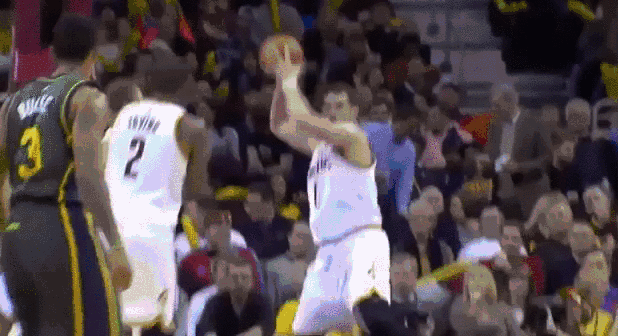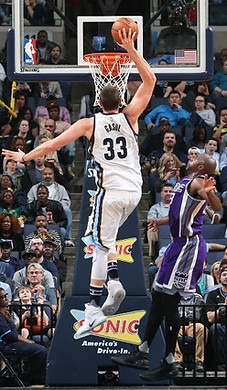
There are many ways to build a champion team and it’s fully determined by the players you have at your disposal. But if I had to start a project from scratch, having the possibility of building a team that suits me and with time to accomplish the goals, it would be distinguished by Three Basic Characteristics.

Having an extremely aggressive and intelligent defense
Prevent and never commit stupid mistakes, offensive and defensively



Making the FAST BREAK an infinite network of possibilities that arise from the guided improvisation of my players, to the point of being unstoppable
What is the FAST BREAK ?
For Traditional Coaches
·Fast Break
(first 5 - 8 seconds)
·Transition
(first 8 - 15 seconds)
·Set Offense
(24 seconds)

For Us
Fast Break extends until the defense is completely adjusted and setted up. Usually, if we really do it full speed and run as we should, then defense never gets to adjust because we always go one step ahead.
Fast Break is not only 1x0, 2x1 or 3x2,
WE RUN FAST BREAK 5x5 as well
FAST BREAK + FREE GAME SYSTEM
The secret to extend fluently the Fast Break is to build a FREE GAME SYSTEM with a wide variety of options where the players can take their own decisions in situ
Guidelines to fit the Fast Break with the Free Game System:

·PRACTICING a lot and well. It's the only way
·Using the SAME SPOTS in both (eg. corners, short corners, wings...)
·When we run, WE KNOW WHAT we’re going TO PLAY before crossing the halfcourt line
·While running, WE LOOK AND ANTICIPATE the movements of teammates and defenders
·Players who run OFF THE BALL are those who facilitate the CREATION OF OPTIONS from our Free Game System
·TALK and COMMUNICATE while running the Fast Break, especially in the early stages when there are still no automatisms
·SWINGING THE BALL, at least once. It’s THE KEY that connects the Fast Break with the Free Game System.
IT’S ESSENTIAL TO CREATE ADVANTAGES.
If you really make the Fast Break and the Free Game System fit together, in the end, what you get is a extremely fluid offense which nobody never know what tempo is playing to. If you’re running, if you’re stopping, if you’re playing for the bigs, for the smalls, if you’re looking for long range, if you’re playing to exploit mismatches...

LANES We Run
WINGS
Run through the SIDES, near the sideline and until UNDER THE BASKET or one relvant spot (eg. CORNERS)

POINT GUARD
Receives the ball in the SIDE and CROSSES the court with DRIBBLE side to side until he reaches the wing (45º)

BIG GUYS
Run through the MIDDLE, at the height of free throw elbows and they go until UNDER THE BASKET

OFF THE BALL
FULL SPEED & DON’T STOP
Players who run off the ball don’t stop until they are in a relevance spot, which is determined by our Free Game System. In our case, these are some relevant spots:


Small details running
OFF THE BALL:
·They have to run LOOKING TO the ball ALWAYS.
·The first player who runs the Fast Break ALWAYS GOES UNTIL UNDER THE BASKET, whether is a big or a wing.
·SPACE OUT for the second Fast Break wave, DON’T STOP RUNNING.
·PLAY ON DEFENDER’S BACK and don’t let them set the defense easily.
·Just continue playing with FREE GAME SYSTEM concepts and reactions.

SKILLSET
required for
BIG GUYS
·Good physical condition
·Excellent balancing
·Finalizing on the rim full speed
·Good passing
·Good handling
·Good game off the ball
·Great moving on defender’s back

SKILLSET
required for
WINGS
·Good physical condition
·Finalizing on the rim full speed
·Good perimeter shooting
·Good handling in traffic
·Basketball IQ
·Good game off the ball
·Good decision making in a short time
WITH THE BALL
The point guard, or PLAYMAKER, runs CROSSING the court with the intention of moving the defense while they’re trying to adjust in Defensive Transition, so we make it really difficult for the helps.
Small details to practice with POINT GUARDS:
·RECEIVING the ball NEAR to the SIDELINE to be able
to see all the court.
·SEEING the offensive court BEFORE RECEIVING the
ball. AND WATCH THE COURT again ASAP after
touch the ball.
·Running FULL SPEED until halfcourt, always. After
halfcourt, continue full speed or slow down a bit to
create free game system situations.
·DON’T LOOK DOWN EVER while running the fast break.
He has to map the rest of the players, offense and defense,
to be able to anticipate the movements and find good options.

SKILLSET
required for
POINT GUARDS
·Quick change of pace
·Excellent ball handling
·Great passing skills
·Good basketball IQ
·Great decision making
·Good perimeter shooting
DRILLS
Basics How We Run
Spots to go for the WING
KEY
WINGS
BIG GUYS
POINT GUARD
Assistant Passer
W
B
P
C

Option 1
First Corner

Option 2
First Short Corner

Option 3
Second Short Corner

Option 4
Second Corner
Spots to go for the BIG GUY

Option 1
First Short Corner

Option 2
Second Short Corner

Option 3
Second one Crossing
Spot to go for the POINT GUARD

Fast Break
without Defense
(2x0, 3x0, 4x0, 5x0)
In a line one player after other and looking to the backboard:
·One rebounder
·One point guard
·The rest just run the lanes
Small details:
·Rebounder:
-
Jumps and grabs the ball as high as possible
-
Lands to the ground looking to the Point Guard
-
Passes as quick as possible (even without touching the ground)
·Point Guard:
-
Gets open on sideline
-
Looks the court before receiving the ball
-
Watch the court again ASAP after touch the ball
·Rest of the Players: run the lanes acording to a planning that combines Fast Break & Free Game System


Offense - Defense - Rest
*Kiire for Fins
It’s the best drill to practice Fast Break with defense in real situation.
A bad thing about it is that requires a lot of players to run it:
·2x2 (8 players) Good to survive
·3x3 (12 players) The most usual
·4x4 (16 players) The best to practice real situations



Back & Forth
with Superiority
(4x4, 5x5)
It's a good way to add to the fifth player and practice how to implement Fast Break with the Free Game System. Gives some advantage to the offensive team so we can practice the offense easier.

Examples of Fast Break Situations

Point Guard crosses with dribble and pass to the Big Guy who trailing to the basket. The PG has to find a window to make the pass in traffic.

Wing goes until second corner and Big Guy until the short corner. Point Guard crosses to the open side of the court and swings the ball with a skip pass to the Wingman, who can continue shooting or passing inside.

Wing goes until under the basket and Big Guy sets a down screen for him. Point Guard crosses and then swings the ball with dribble to pass the Wingman getting off the screen, who can continue shooting or passing inside.

First Wing goes until under the basket to attract the defense and clear the space for Second Wing who occupies the corner. Point Guard crosses and passes.

First Wing goes to the corner and Second Wing cuts to the basket. Point Guard crosses and passes to the First Wing who automatictly will pass to the cutter.

First Wing slows down in three point line to set a screen with the back for Second Wing who goes to the basket. Point Guard crosses and can decide to pass for the alley-hoop or to the screener to shoot.

Special Situation
The best way to stop every Fast Break is Stopping the Ball as soon as possible, so we have a solution for that situation too.
Point Guard starts crossing with dribbling normally and the Wing is running crossing the court right behind the PG, so they can do a Hand Off and don't slow down the Fast break.
& EXAMPLES
